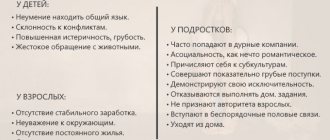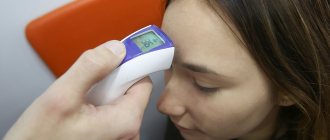How long should a baby sleep?
The importance of sleep for babies is difficult to overestimate.
Quality rest, as well as good nutrition, is the key to normal physical and psycho-emotional health of children. During sleep:
- the hormone somatotropin is produced, which plays an important role in the formation of the skeleton;
- Immunity is restored. After falling asleep, T-lymphocytes are activated, destroying viruses and bacteria;
- metabolism in tissues increases;
- cells are renewed;
- the nervous system relaxes.
Babies spend most of their time sleeping during the first three months of life. According to WHO recommendations, the total sleep duration of babies from 0 to 3 months should be 14–17 hours a day. However, these indicators are approximate, because each child is individual. Therefore, if your baby sleeps more or less than the established norm, but still feels good, then there is no need to worry.
What to pay attention to
True, you shouldn’t completely ignore your baby’s shuddering and twitching in his sleep. In rare cases, such phenomena may indicate an existing disease. Therefore, attentive parents must monitor some aspects of children’s sleep disorders, such as:
- Frequency and rhythm of twitching during sleep. Prolonged rhythmic twitching of the whole body or some part of it can often be a manifestation of seizures. Children especially often experience febrile seizures in response to high fever [4]. Less commonly, this may be a consequence of pathology of the child’s nervous system, including epilepsy [5].
- Frequency of baby's awakenings. If startling during sleep causes a child to wake up frequently, this may indicate a disease of the nervous system, which requires consultation with a neurologist [6].
- State after awakening. If the baby wakes up after almost every start and awakening is regularly accompanied by anxiety and crying, despite the fact that there are no objective reasons for this (pain, temperature), a visit to a neurologist is mandatory.
Be attentive to your child, but don't panic! In most situations, there is no cause for serious concern. In other cases, medicine will come to your aid.
Dormikind, a German drug containing natural active ingredients, which is approved for use in children from birth, helps normalize children's sleep and relieve anxiety.
Read the instructions
Features of sleep for babies from 0 to 3 months
Some manifestations of restless behavior in children after falling asleep can be explained by the peculiarities of the structure of their sleep.
A baby's sleep, like an adult's, consists of two phases:
- Orthodox or slow-wave sleep. During this period, the brain is inactive, the body is relaxed, breathing is even and calm. It is during slow-wave sleep that a person fully rests and restores physical strength.
- Paradoxical or REM sleep. The paradoxical phase is characterized by an increase in body temperature and pressure, rapid heartbeat, breathing, and rapid movement of the eyeballs under closed eyelids.
During sleep, both phases replace each other: first comes slow sleep, then fast sleep, and so on in a circle. The structure of sleep in infants in the first months of life is unique: its main part is REM sleep, during which the baby may grimace, twitch his arms and legs. This behavior of a baby during sleep is absolutely normal and should not bother parents. As the child grows older, the period of the orthodox phase gradually increases, and the child begins to sleep more peacefully.
When a child appears in a family, literally all the parents’ attention is directed to him. Even when the baby is sleeping, parents do not miss the opportunity to admire him. What a pleasant picture - a child sleeping sweetly. Parents are ready to watch their treasure for hours. But at some point they understand, the baby shudders in his sleep, and the level of parental anxiety immediately increases, some mothers and fathers immediately run to the doctors.
Depending on the age of the baby and the nature of the shudders, we can say whether this is normal or pathological. Let's look at some of them.
We want to reassure you, in the vast majority of cases this is normal and does not require any treatment or medical intervention.
A newborn baby starts in his sleep for a number of reasons:
- Sharp sounds . Your baby has just been born; he spent 9 months in his mother’s tummy, where the sounds of the outside world were muffled. In the first days of life, water still comes out of the ears, which got there during pregnancy and childbirth. After this, the whole variety of sounds suddenly opens up for the baby. Imagine what a huge flow of information falls on a small person! The sound of your steps, the knocking of a door, the horn of a car under the window, the boiling of a kettle and much more are sounds so familiar to us adults, without which we can no longer imagine life. The advice in this case is very simple - do not create perfect silence so that the child gradually gets used to what is happening around him, but also do not put unnecessary strain on his ears. There is no need to deliberately clap your hands and loudly sing melodies, wait a little, the baby will get stronger and grow up and will appreciate these skills of yours. To prevent sounds from disturbing your baby’s sleep, you can choose the optimal noise for your baby to sleep to.
- Unpleasant dreams . No one knows exactly what newborns dream about, but it has been proven that even in the womb a child dreams. It is likely that these dreams can be both positive and negative, because every day the baby learns so many new things!
- Physiological processes . No matter how strange it may sound, some children shudder or twitch when going to the toilet. Watch your baby, maybe he is one of them.
- Discomfort in the tummy . All parents have encountered or at least heard about such a phenomenon as colic. Painful spasms can wake the baby. In this case, flinching will be a protective reflex in newborn babies. 20% of children encounter them. If your baby is one of them, he may startle and cry in his sleep for this very reason. In some cases, doctors prescribe special medications to alleviate pain in a child. Colic goes away on its own in 3-4 months.
- Moro reflex . This is a reflex that is present in absolutely all newborns and it manifests itself like this - the baby sharply throws his arms up and to the sides, unclenching his fists. In some children it manifests itself very strongly and they wake up and scare themselves, in others it is weak. If your baby falls into the first category, try using swaddling while sleeping. By 4-5 months, the reflex fades away on its own and ceases to bother the baby.
- Overwork . In the morning, a walk to the toy store, grandma came in the afternoon, guests in the evening. The baby has a lot of different impressions, a lot of information that needs to be processed. This is what he will do during daytime and nighttime sleep. After such a day, there may be resistance when laying down, frequent awakenings at night and, as a result, shuddering. All this happens due to overwork. The child's nervous system is at its limit. Usually, the startlings are prolonged if the routine is severely disrupted and the child is systematically overtired. To solve the problem, the baby needs to rest, and the problem will go away on its own. The task of parents in the future is not to overload the baby and not let him get overtired.
- Teething . For some babies, the teething process goes smoothly and does not cause concern. Others may experience a host of accompanying symptoms. The most common of them: temperature, screams and shuddering in sleep. As soon as the child’s last tooth comes out, all problems will go away. You can contact your doctor and ask to prescribe soothing gels for your gums.
- Sleep phases . Children may startle when transitioning between stages of REM and non-REM sleep. This phenomenon is also typical for adults. At this moment, the child may wake up from his own movements and further fall asleep. With age, when there is more slow-wave sleep, the child will startle less when moving from one phase to another.
- Psychological reasons . Especially observed in children over 5 years of age. The main factors that influence poor and restless sleep are the loss of loved ones, divorce of parents, quarrels in the family, and psychological pressure on the child. If you notice such signs in your child, you need to contact a specialist.
- Diseases . Poor metabolism, insufficient calcium levels, intracranial pressure, disruption of the central nervous system. Often the causes of these pathologies are: birth trauma, oncology, anemia. Most often, the disease is accompanied by additional symptoms, such as seizures.
We have looked at why a child shudders in his sleep, but we want to note the following. Watch your child, study him. If you are very worried, worried, and it seems to you that your baby is shaking too often or too much, be sure to tell your doctor.
Most often, parents are interested in how to distinguish cramps from shudders?
When a child is picked up in the process of shuddering, they will stop; the convulsions will not stop. Also, ARVI diseases are most often accompanied by convulsions due to a strong increase in body temperature (above 38.5°). In this case, it is necessary to urgently seek medical help.
Situations that require immediate response and consultation with a doctor:
- The shuddering is accompanied by an increase in body temperature.
- The duration of the shudder exceeds 10 minutes.
- At 12 months, a child starts more than 10 times in one sleep.
- After you pick up the baby, the movements continue and do not go away.
- Trembling in newborns does not go away even after reaching the age of 5 months.
Newborn babies have different dreams. Dreams can make them startle several times in one dream. Sleep is short, up to 15 minutes. During a dream, the baby may grimace, show various emotions on his face, and groan.
In order for your child to startle less in his sleep, you can help him. The first and most important thing parents can do is not to panic and monitor the child’s condition. Check all external factors. Correlate the physical condition and age of the child.
A few recommendations to reduce the likelihood of your baby flinching:
- Turn on white noise for all your dreams.
- Swaddle the baby.
- Choose a comfortable sleeping position.
- During the day, he is often outdoors with the baby.
- The bed should not be placed close to radiators.
- Show him your love, hug the child more often, take him in your arms.
- Ventilate the room before going to bed.
- Take soothing baths.
- Organize proper waking hours. Move all activities to the first half of the day.
- Do a light relaxing massage.
- Breastfeeding can also have a beneficial effect on the child's psychological and emotional well-being. During breastfeeding, children do not flinch because they feel safe.
On the one hand, shuddering in children may indicate that completely normal physiological processes are occurring in the baby’s body, which do not require intervention and go away on their own. But on the other hand, shuddering during sleep in children may indicate the onset of the development of serious diseases. To eliminate risks and not worry about the health of the baby, parents should consult a doctor and explain the situation.
Author: Tatyana Kremneva.
The main causes of restless sleep in babies
Frequent awakenings of babies, difficulties with subsequent falling asleep, crying and screaming in their sleep can be associated with the following reasons:
- hunger;
- intestinal colic;
- excess of emotions;
- uncomfortable sleeping conditions;
- poor sleep hygiene;
- somatic diseases;
- increased intracranial pressure.
Online consultation with a pediatrician
Online consultation
During the consultation, you will be able to voice your problem, the doctor will clarify the situation, interpret the tests, answer your questions and give the necessary recommendations.
Hunger
Hunger is the main cause of restless sleep in babies from 0 to 3 months. Breastfed babies wake up every 1-3 hours to feed. Formula-fed babies eat less often (every 2-5 hours) because the gastrointestinal tract takes longer to digest the formula.
Mothers of breastfed babies have the choice of feeding their babies on demand or by the hour. The WHO recommends choosing the first option, which not only meets the child's nutritional needs, but also promotes calm behavior. When feeding on demand, mothers should not be afraid of overfeeding their babies: they will never eat more than they need.
It happens that a child often wakes up and asks for the breast due to a woman’s lack of milk. In such a situation, the baby, in addition to restless sleep, will experience insufficient weight gain, a decrease in the number of urinations, and dry skin.
Intestinal colic
Intestinal colic in infants is sudden, paroxysmal pain in the abdomen. Children with colic are restless, eat poorly, spit up a lot, often knock their legs, sometimes throw their heads back and arch.
The exact cause of colic in babies is unknown. There are several theories about the origin of paroxysmal pain. One of them is the immaturity of the gastrointestinal tract. Imperfect motor function of the digestive tract leads to increased gas formation in the intestines, which causes pain.
As a rule, colic is a physiological norm and goes away on its own by 3 months of age. Therefore, parents should be patient and calmly treat this child’s condition.
What can help a baby with colic?
- Mother's diet if the child is breastfed. It is worth removing from your diet foods that increase gas formation: sweets, legumes, vegetables with coarse dietary fiber (cabbage, radish, radish), carbonated drinks.
- Selection of an adequate formula if the baby is bottle-fed.
- Correct baby position during and after feeding. During feeding, it is important to avoid the baby from swallowing air. To do this, make sure that when feeding the baby does not rest his sweaty nose on the areola, and he maintains normal nasal breathing. After feeding, the baby should be held in a “column” position.
Herbal medicines and probiotics are also used to relieve colic. However, such treatment can only be used after consultation with a pediatrician.
Excess of emotions
In the first three months of life, babies' hearing and vision quickly develop. Thanks to this, they actively get acquainted with the world around them and receive a lot of emotions and impressions. And if a newborn perceives only loud sounds, then by the age of 2 months the baby begins to hear low and quiet tones, learns to compare what he hears with what he sees, and tries to connect auditory and sound impressions together.
During sleep, the child's brain carefully processes and analyzes all the impressions he received while awake. Therefore, an excess of emotions can negatively affect children's sleep. Too loud music before bedtime, large crowds of people - all this affects the quality of rest. Eliminating such factors will help avoid an excess of emotions in the child.
Uncomfortable sleeping conditions
Uncomfortable conditions can also cause your baby to have restless sleep. The optimal conditions for children's recreation are:
- Air temperature 20–22 °C. At higher levels, the child may feel stuffy and hot. You should not wrap your baby up or put extra clothes on him “just in case.”
- Air humidity 40–60%. Dry air in the room leads to dry mucous membranes, difficulty breathing through the nose, and thirst.
- Dim lighting during the day and no lighting at night. Bright lighting is a irritant that affects sleep. During daytime sleep, you should not create complete darkness: this can lead to the child confusing day with night.
- Clothes made from natural fabrics, without tight elastic bands.
- Dry diaper. Slips - comfortable and practical clothing for babies - allow you to quickly change a diaper during sleep.
Poor sleep hygiene
Well, what mother would refuse to carry her baby in her arms and rock her when he is capricious and does not go to bed? Meanwhile, such manipulations before bedtime will eventually lead to the fact that the child will not be able to fall asleep on his own.
Of course, you should not impose strict discipline on your child’s behavior before bedtime. It is not at all necessary to leave the baby alone in the crib. You can just be nearby. Do not carry in your arms, but hug. Don't rock him, but pat him on the head. In essence, this is the replenishment of the same missing contact with the mother.
Somatic diseases
Somatic diseases include disorders caused by external influences or malfunction of internal organs. But at the same time they are in no way connected with the human psyche. The most common somatic disorders in infants are runny nose and dermatitis.
In the first case, difficult nasal breathing interferes with the child’s proper sleep. With dermatitis, the child’s body becomes covered with inflamed areas that itch and cause severe discomfort. Competent treatment prescribed by a pediatrician will allow you to cope with such diseases.
Increased intracranial pressure
The functioning of the brain and spinal cord is impossible without regular circulation of cerebrospinal fluid - a biological fluid consisting of water, amino acids, enzymes, and trace elements. Normal circulation of cerebrospinal fluid provides the cells of the brain and spinal cord with necessary nutrients, removes metabolic products, and neutralizes short-term changes in blood composition. Any deviation in the cerebrospinal fluid circulation system leads to excessive accumulation of biological fluid in the cavities of the brain and an increase in intracranial pressure.
High intracranial pressure in infants is manifested not only by sleep disturbances, but also by other signs:
- increase in head size;
- constant regurgitation;
- decreased appetite;
- increased nervousness.
In order to identify and eliminate the disorder, it is necessary to do neurosonography (ultrasound of the brain with Doppler) and contact a neurologist.










